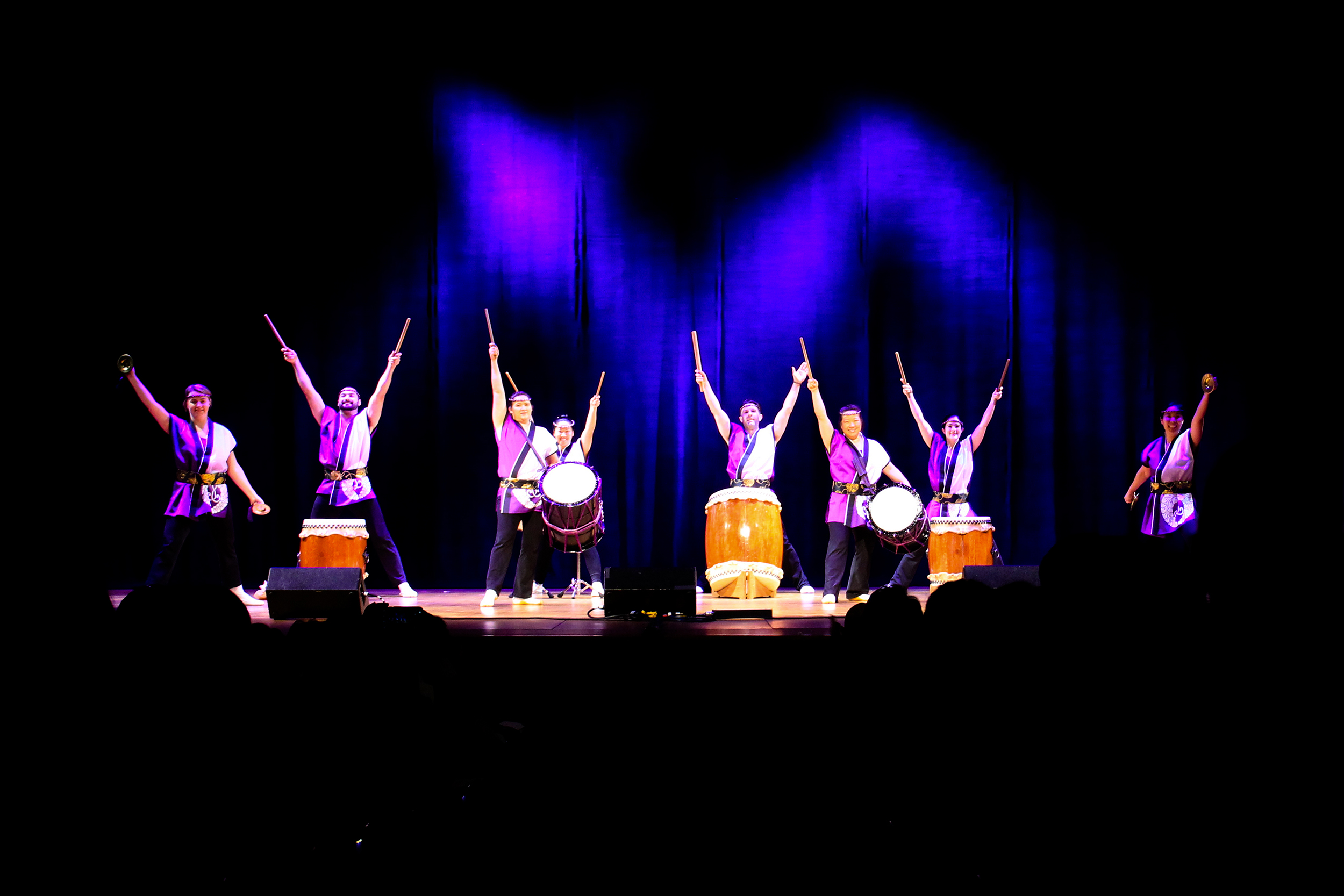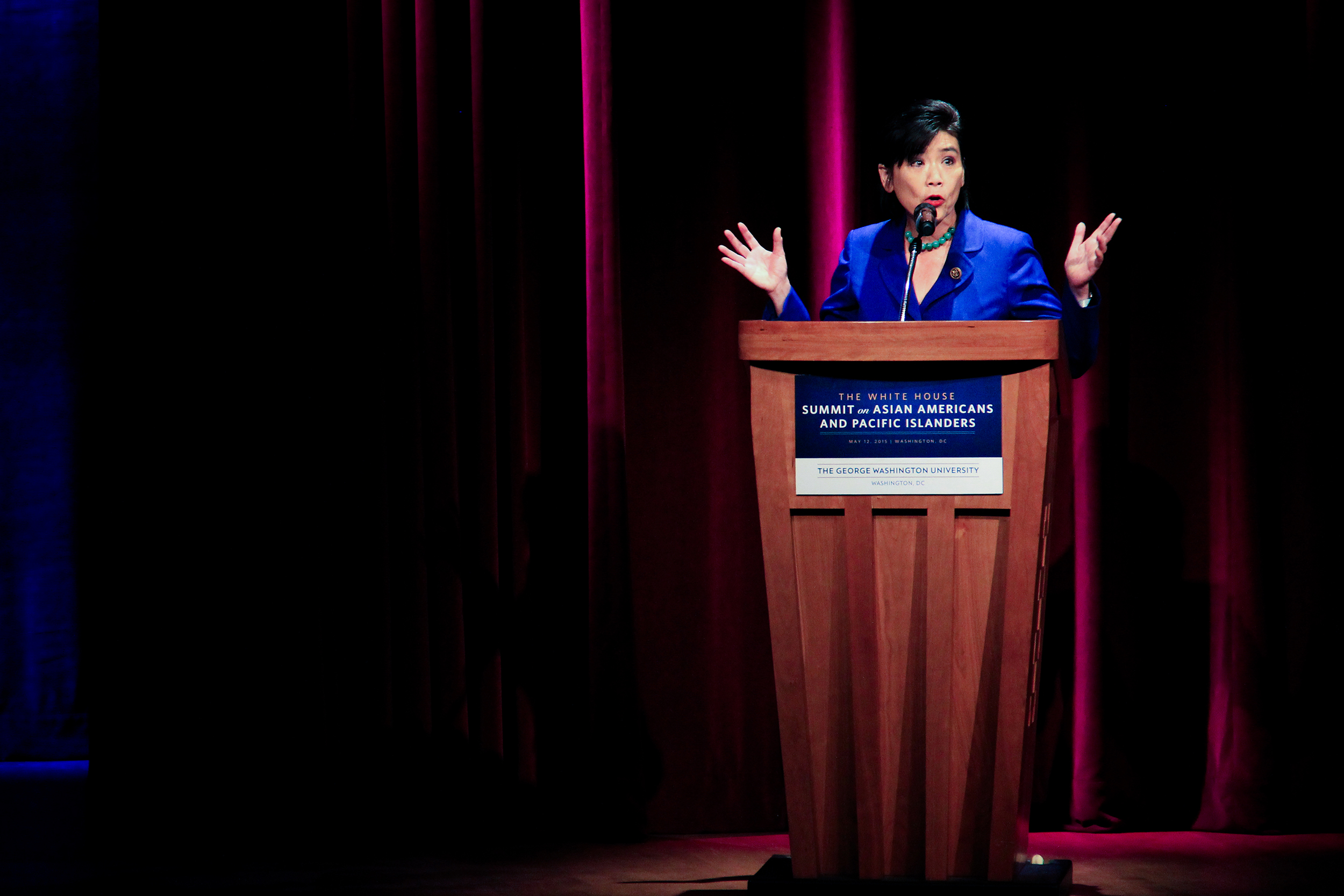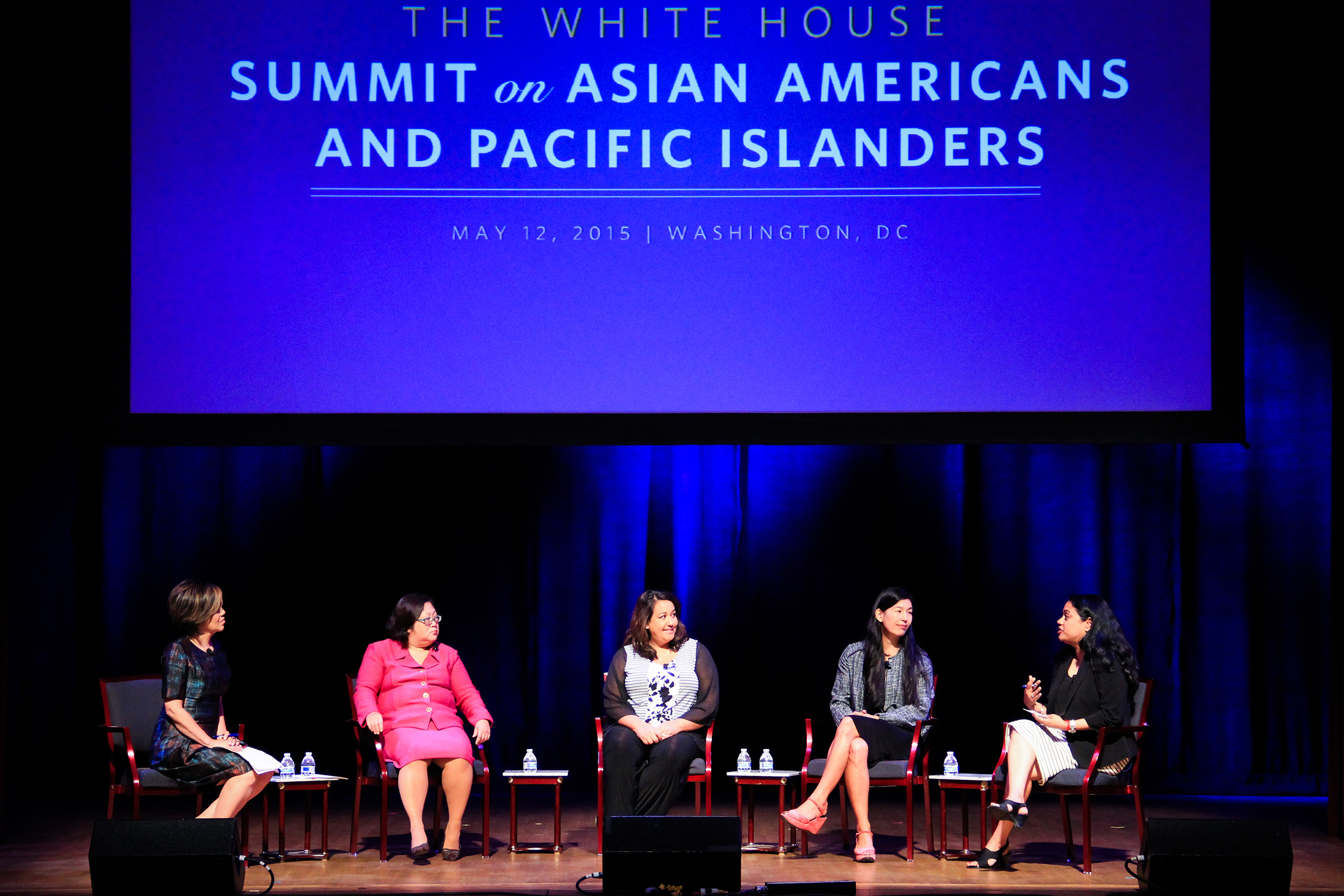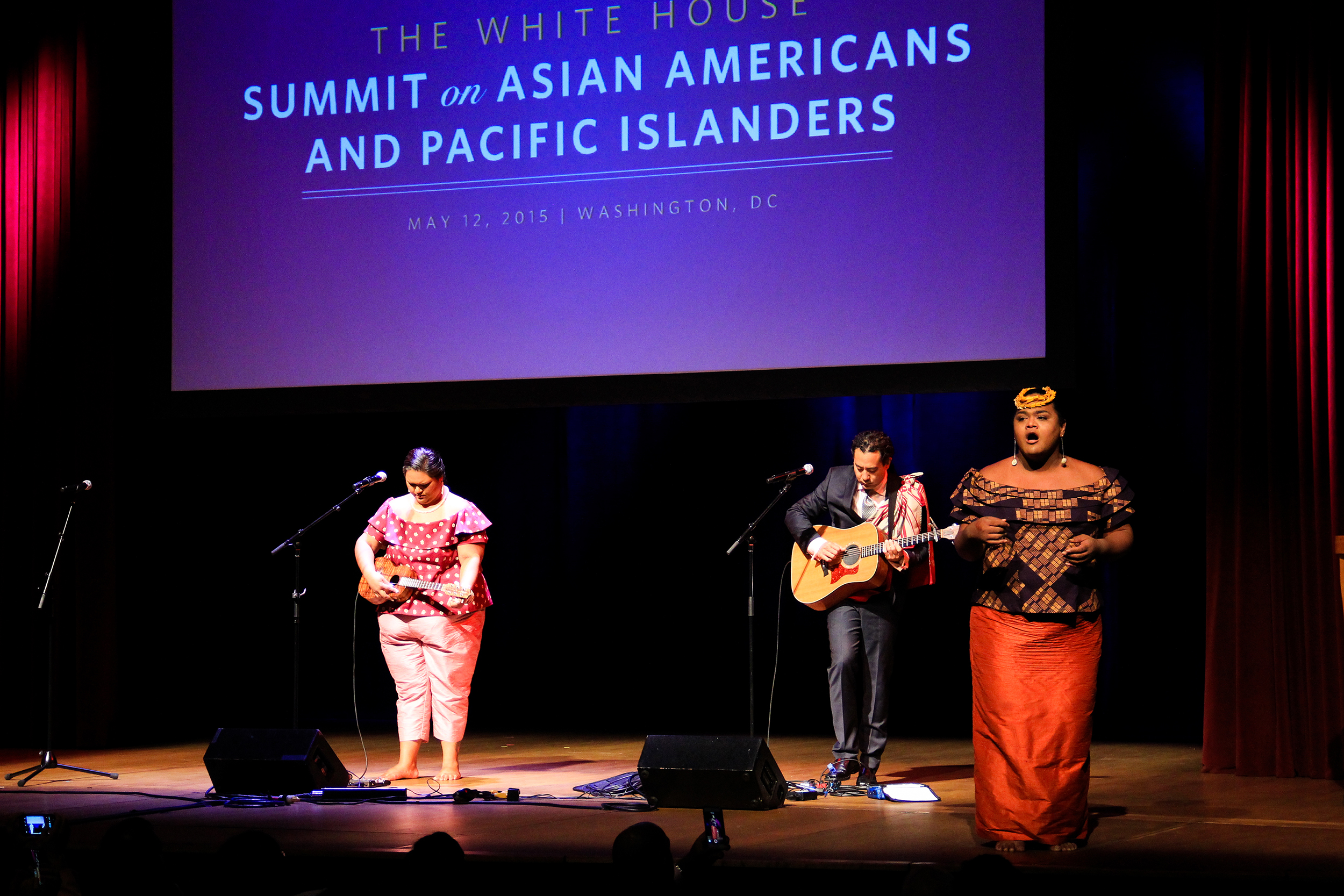WASHINGTON — As the U.S. prepares to elect a new president next year, Asian and Pacific Americans should be more aggressive in the immigration debate to fight for social equity, leaders from different fields said on Tuesday at the first-ever White House Summit on Asian Americans and Pacific Islanders.
“In people’s mind immigration is about Hispanics and civil right is about African Americans,” said Karen Narasaki, a civil and human rights consultant. “We stand in the crossroad and we get ignored.”
The summit, which was held at the George Washington University, featured more than 2,000 federal officials and community leaders from more than 40 states and the Pacific region to highlight the group’s contribution to the country and discuss major issues facing AAPIs, including economic growth, education, health care, civil rights and immigration.
“A melting pot is what makes America unique and keeps us dynamic,” President Barack Obama, who was not present, said in a video. “We still got to get Congress to pass the immigration bill so that we can expand opportunity for more people to study, serve and contribute to our nation.”
As the fastest growing racial group in the U.S., AAPIs have played a critical role in the nation’s development, said Rep. Judy Chu, D-Calif., the first Chinese-American woman elected to Congress.
“When AAPIs have a seat at the table where the decisions are being made, we can make a difference,” Chu said. “We can make a difference in breaking the glass ceiling in federal government.”
While there’s now a historic high of 14 AAPIs in Congress, Chu said most Asian and Pacific Americans are still invisible when it comes to political engagement.
“For far too long in this country,” Chu said, “AAPIs have been in their own separate silos doing their own things, raising money when asked, many times not getting much in return. Well, this is the time to change it.”
Panelists agreed that with the immigration debate in the full swing, AAPIs, especially the young generation, should step out to earn the social identities they deserve.
“We do have to do a better job of being a little more aggressive,” said Mini Timmaraju, national director of the National Council of Asian Pacific Americans. “We need to be very, very clear about who we are with and who is not with us.”
Pacific Islanders were emphasized during the discussion since they were thought to be overshadowed by Asian Americans. “There is no reason that native Hawaiians and Pacific Islanders should be the little cousins of the ‘AA’ community,” said Michelle Kauhane, president and CEO of the Council for Native Hawaiian Advancement.
The White House Initiative on Asian Americans and Pacific Islanders, which was established by President Bill Clinton in 1999 to facilitate the group’s access to and participation in the federal programs where they otherwise remain underserved, organized the event.
The summit was part of the celebration of Asian-Pacific American Heritage Month.
“We have our own history and we have to build on it,” Timmaraju said. “We have to talk about what we are doing today in an amplified way.”





